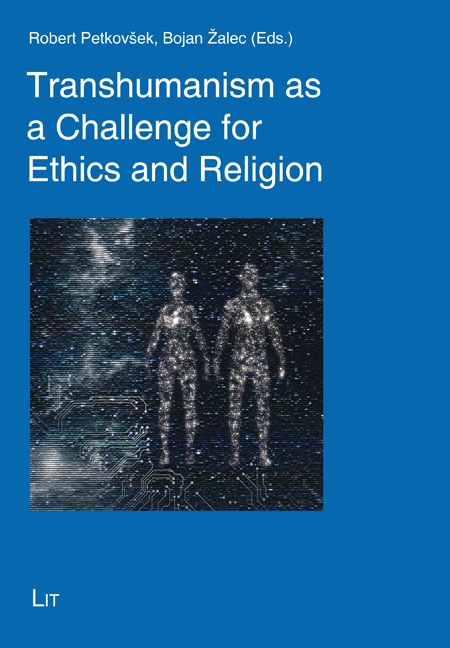 Buy | Robert Petkovsek, Bojan Zalec (Eds.) Transhumanism as a Challenge for Ethics and Religion Reihe: Theology East – West / Theologie Ost – West Bd. 27, 2021, 236 S., 34.90 EUR, 34.90 CHF, br., ISBN 978-3-643-91297-8 The crucial question of our time is: How to preserve humanity, humanitas, in a world of radical and not so long ago practically unimaginable technological possibilities? The book addresses this issue through its treatment of transhumanism, a diverse movement the representatives of which promise and advocate for the enhancement of human being through modern science, technology, and pharmacology. Their views differ in the degree of extremity, and they contain many ambiguities, as well as pitfalls and dangers that require an answer from both ethical and religious points of view. The book deepens the understanding of transhumanism in an interdisciplinary way and thus helps to form the right attitude towards it that will truly benefit human flourishing. It offers a rich variety of views on transhumanism, ranging from its illumination in the light of contemporary research into happiness, through liberal eugenics and biopolitics, all the way to its considerations in terms of religions and manifestations in concrete works of art. Robert Petkovšek is Professor of Philosophy at the Faculty of Theology, University of Ljubljana. Professor Bojan Žalec is the Head of the Institute of Philosophy and Social Ethics at the Faculty of Theology, University of Ljubljana. |
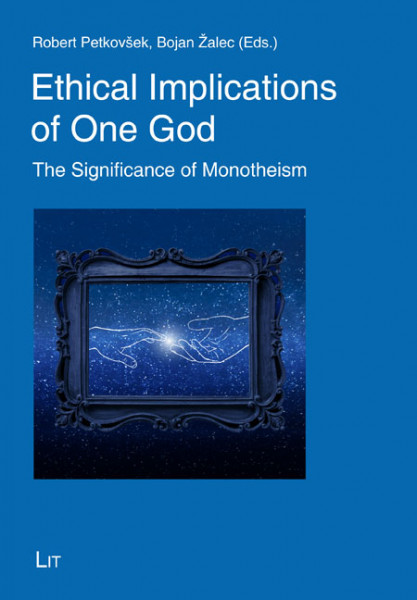 Buy | Robert Petkovsek, Bojan Zalec (Eds.) Ethical Implications of One God The Significance of Monotheism Reihe: Theology East – West / Theologie Ost – West Bd. 26, 2020, 208 S., 29.90 EUR, 29.90 CHF, br., ISBN 978-3-643-91126-1 The issue of the ethical implications of monotheism is a very relevant topic from the point of view of contemporary humanities and social science, and from the perspective of the cultural and political condition in Europe and at the global scale. Therefore a scientific book devoted to this subject makes a lot of sense. Throughout history and in present times, monotheism has been subjected to several sharp criticisms. On the other hand, we find also very different evaluations of it. They stress its positive and even crucial contribution to peace, to the forming of rational, non-violent, tolerant culture and society, to scientific, political, and cultural development, to democracy, etc. The book offers fresh interdisciplinary perspectives—mainly from the point of view of humanities—on the ethical aspects of monotheism, broadens the scientific understanding of it, and establishes a basis for resolving conflicts to which the understanding of monotheism is relevant or even decisive. Robert Petkovsek is Associate Professor and Head of the Chair for Philosophy at the Faculty of Theology, University of Ljubljana. Bojan Zalec is Senior Research Fellow and Head of the Institute of Philosophy and Social Ethics at the Faculty of Theology, University of Ljubljana. |
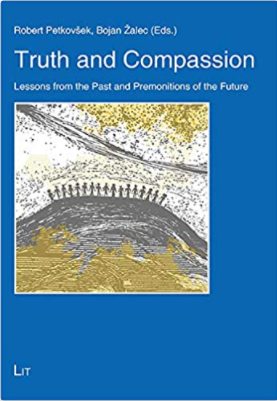 Buy | Robert Petkovsek, Bojan Zalec (Eds.) Truth and Compassion Lessons from the Past and Premonitions of the Future Reihe: Theology East – West / Theologie Ost – West Bd. 20, 2016, 186 S., 29.90 EUR, 29.90 CHF, br., ISBN 978-3-643-90773-8 The book offers an integral and inter-disciplinary view on truth and compassion, their mutual connectedness, the meaning of their cultivation, and the devastating consequences of their neglect and destruction. The authors analyse their various forms, their origins, and concrete ways and attempts of their repression. The book is marked by the attention to the topic of truth and compassion under communism. But this is only one of its segments. As a whole it ranges from basic theological and philosophical analysis to concrete historiographic treatments of particular cases. The central message is that speaking about grievances, communication, dialogue, empathy, and solidarity are necessary for living in truth and compassion. Robert Petkovsek is Associate Professor and Head of the Chair for Philosophy at the Faculty of Theology, University of Ljubljana. Bojan Zalec is Senior Research Fellow and Head of the Institute of Philosophy and Social Ethics at the Faculty of Theology, University of Ljubljana. |
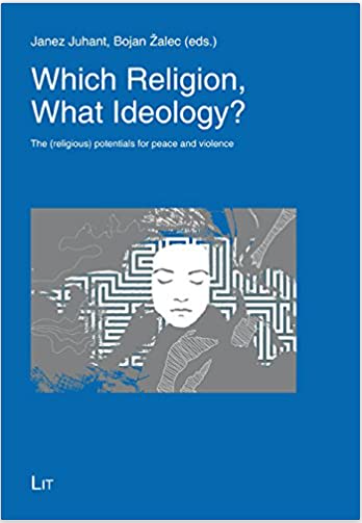 Buy | Janez Juhant, Bojan Zalec (Eds.) Which Religion, What Ideology? The (religious) potentials for peace and violence Reihe: Theologie Ost-West Bd. 19, 2016, 208 S., 29.90 EUR, 29.90 CHF, br., ISBN 978-3-643-90664-9 The book deals with the relation of religion, ideology, violence and peace. The authors discuss these topics and related phenomena as religious (in)tolerance, religious pluralism, political terror and postsecular culture from different aspects (education, marriage, culture of memory, business ethics), in different concrete societal contexts (Slovenia, Slovakia, Hungary, Poland, Taiwan …) and against the background of different academic disciplinces philosophy, theology, science of religion, sociology, intellectual history, psychology, science of education and legal science. Thus the book offers an integral and inter-disciplinary insight into the nature, origins, function and connections of the mentioned phenomena. Janez Juhant is Professor of Philosophy at the Faculty of Theology, University of Ljubljana, and a member of the European Academy of Sciences and Arts, Salzburg. Bojan Zalec is Associate Professor of Philosophy, Senior Research Fellow and Head of the Institute of Philosophy and Social Ethics at the Faculty of Theology, University of Ljubljana. |
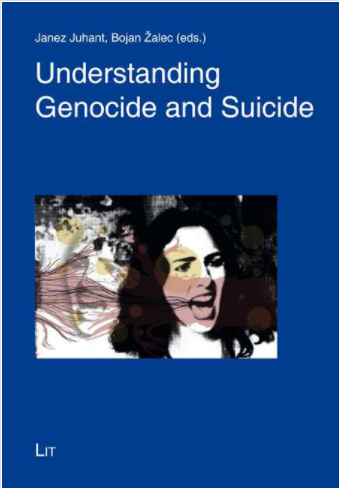 Buy | Janez Juhant, Bojan Zalec (Eds.) Understanding Genocide and Suicide Reihe: Theologie Ost-West Bd. 18, 2015, 170 S., 29.90 EUR, 29.90 CHF, br., ISBN 978-3-643-90527-7 The present book brings essays that deal with suicide and genocide from several aspects and points of view: historical, sociological, science of religion, psychological and therapeutic, educational, legal, philosophical and theological. Some of them combine several approaches and thus the book as a whole offers an integral inter-disciplinary insight into the nature, origins, function and connections of both phenomena. It also outlines the ways and models for their prevention and overcoming of their effects and consequences. It can be useful as for students as well for the experts in the fields of humanities and social science. The book is marked by the Central European origin of the authors which partly resulted in its special topics and stresses. Janez Juhant is Professor of Philosophy at the Faculty of Theology, University of Ljubljana, and a member of the European Academy of Sciences and Arts, Salzburg, working in the fields of ethics, anthropology and theology. Bojan Zalec is Associate Professor of Philosophy, Senior Research Fellow and Head of the Institute of Philosophy and Social Ethics at the Faculty of Theology, University of Ljubljana, working in the fields of ethics and anthropology. |
 Buy | Janez Juhant, Bojan Zalec (Eds.) From Culture of Fear to Society of Trust Reihe: Theologie Ost-West Bd. 17, 2013, 272 S., 29.90 EUR, 29.90 CHF, br., ISBN 978-3-643-90414-0 Fear is an emotion that is strongly connected with violence and with the darkest periods of our history including terrorism, genocides and totalitarianism. It is especially important for theology where it can be considered also from very positive aspects. Our culture and our way of life are too much burdened with unnecessary fear. There are different factors involved in the cultivation of adequate culture of fear, and one of them is certainly that we know how to cultivate it. Therefore we need knowledge about fear. The purpose of this book is to increase and widen this knowledge |
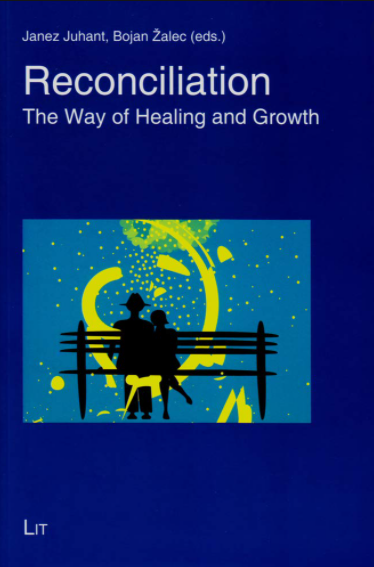 Buy | Janez Juhant, Bojan Zalec (Eds.) Reconciliation The Way of Healing and Growth Reihe: Theologie Ost-West Bd. 16, 2012, 304 S., 19.90 EUR, 19.90 CHF, br., ISBN 978-3-643-90202-3 The book considers reconciliation from various points of view: biblical foundations of reconciliation, philosophical aspects, Girardian and Bonhoefferian reflections on reconciliation, intellectual and (post)totalitarian history, psychotherapeutic approaches … The authors consider reconciliation also in very concrete (historical) contexts (Hungary, Russia, Slovenia, Islam and Christianity). Despite some disagreements, their common message is clear: human history and present times are covered with blood, suffering (of innocent victims) and negative emotions. Hence the only acceptable way is cultivation of the culture of reconciliation. Read the book to find out how. Janez Juhant is Professor of Philosophy at the Faculty of Theology, University of Ljubljana, and a member of the European Academy of Sciences and Arts, Salzburg, working in the fields of ethics, anthropology and theology. Bojan Zalec is Associate Professor of Philosophy, Senior Research Fellow and Head of the Institute of Philosophy and Social Ethics at the Faculty of Theology, University of Ljubljana, working in the fields of ethics and anthropology. |
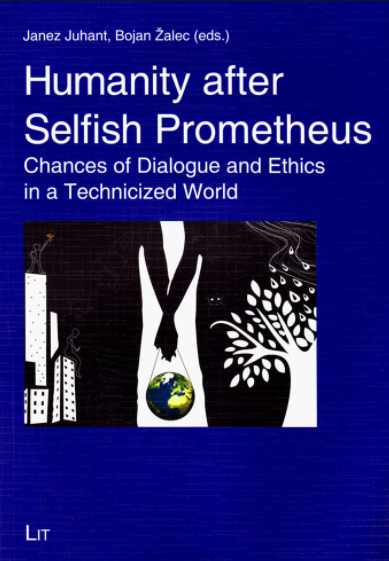 Buy | Janez Juhant, Bojan Zalec (Eds.) Humanity after Selfish Prometheus Chances of Dialogue and Ethics in a Technicized World Reihe: Theologie Ost-West Bd. 15, 2011, 304 S., 19.90 EUR, 19.90 CHF, br., ISBN 978-3-643-90075-3 Neither any technological development nor any institutional mechanisms (economical, legal, political etc.) can compensate the lack of ethical persons. Reaching sustainable development and life of quality is possible only on the basis of view which is not trapped, flat and reducing, on the basis of an effort, which ca – founded on temperance and humility (in relation to the nature, self, others and (O)other) – (co)create cooperation, higher order synthesis and synergy of the crafts that are the conditio sine qua non of survival, harmonious world and (decent) existence of a human (as a human) in it. Professor Janez Juhant, University of Ljubljana, Faculty of Theology, the Head of Chair of Philosophy Bojan Zalec, Senior Research Associate, the Head of Institute of Philosophy and Social Ethics, University of Ljubljana, Faculty of Theology |
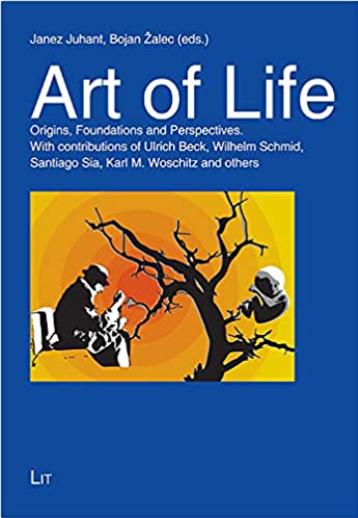 Buy | Janez Juhant, Bojan Zalec (Eds.) Art of Life Origins, Foundations and Perspectives. With contributions of Ulrich Beck, Wilhelm Schmid, Santiago Sia, Karl M. Woschitz and others Reihe: Theologie Ost-West Bd. 14, 2010, 360 S., 19.90 EUR, 19.90 CHF, br., ISBN 978-3-643-90043-2 All civilizations have cultivated some kind of ars vivendi, and also our own (present) is no exception. At one hand the present society more deeply than ever interferes with secrets of life. Yet at the other hand, there are signs of non-mastering the life, the escape in the opposite direction, to non-life. There are even sings of turning to death. The former Pope John Paul II spoke about our culture as a culture of death. How can we consider the art of life as a challenge for solving difficult problems of man’s life in the time being? We offer a scientific contribution (provided by scholars cultivating several scientific approaches and disciplines) to multilayered background from which alone the genuine sense of proper attitude toward them can grow. Professor Janez Juhant, University of Ljubljana, Faculty of Theology, the Head of Chair of Philosophy Bojan Zalec, Senior Research Associate, the Head of Institute of Philosophy and Social Ethics, University of Ljubljana, Faculty of Theology |
 Buy | Janez Juhant, Bojan Zalec (Eds.) Surviving Globalization The Uneasy Gift of Interdependence Reihe: Theologie Ost-West Bd. 13, 2008, 288 S., 29.90 EUR, 29.90 CHF, br., ISBN 978-3-8258-1692-6 Through globalization humanity is becoming more and more mutually dependent and even united, but at the same time the multidimensional differences and gaps between us are appearing as a challenge to this connectedness. “No one can live only on food.” (Lk 4, 4) are words that clearly witness that the connective tissue of humanity can’t be only of economical and political nature. Also the pasture the media offer to people is too often just an instrument of the owners and not the fulfilment of media’s proper function to cultivate and spread (capacity for knowing) the truth. At one hand the interweaving of ideological streams is (mis)used by new gurus for taking the possession of control. At the other hand the representatives of established religions and value systems are searching for formulas for a successful competition on the global market. What are then the possibilities and ways of survival, well-being and life worth of human person in the contemporary increasingly complex condition? This question is from various scientific aspects and different (religious) horizons reflected upon in our book. Janez Juhant & Bojan Zalec, the editors Janez Juhant ist Professor für Philosophie an der Theologischen Fakultät der Universität Ljubljana und Vorstand des Lehrstuhles. Sein Arbeitsschwerpunkt liegt auf ethischen Fragestellung, die sich für Menschen der Postmoderne ergeben. |
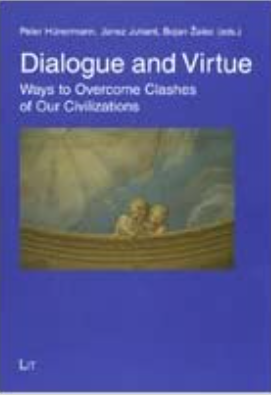 Buy | Peter Hünermann, Janez Juhant, Bojan Zalec (Eds.) Dialogue and Virtue Ways to Overcome Clashes of Our Civilizations Reihe: Theologie Ost-West Bd. 10, 2007, 352 S., 19.90 EUR, 19.90 CHF, br., ISBN 978-3-8258-0814-3 In our, postmodern world the word `dialogue’ is very common: we speak about the necessity of a dialogue among individuals, inside a family, between different religions, cultures, ethnic groups etc. Even if many people just (mis)use the word, but in fact they do not practice a dialogue where and when they should, the frequent use of it reflects the fact that a dialogue is a value which is indispensable for a good human life, and hence cannot be ignored in an ethical and political arguing. Because today almost all people experience diversities in this world, there is an urgent necessity to overcome the clashes they bring with. It is impossible to reach peace and stability through violence, neither (only) by tolerance; mutual understanding, empathy, respect and compassion are necessary for them. Dialogue is deeply rooted in human beings. It must be cultivated, with knowledge, prudence, wisdom and love. Janez Juhant ist Professor für Philosophie an der Theologischen Fakultät der Universität Ljubljana und Vorstand des Lehrstuhles. Sein Arbeitsschwerpunkt liegt auf ethischen Fragestellung, die den Menschen der Postmoderne betreffen. Dr. Dr.h.c.mult. Peter Hünermann ist emeritierter Professor der Katholische-Theologischen Fakultät der Universität Tübingen. |
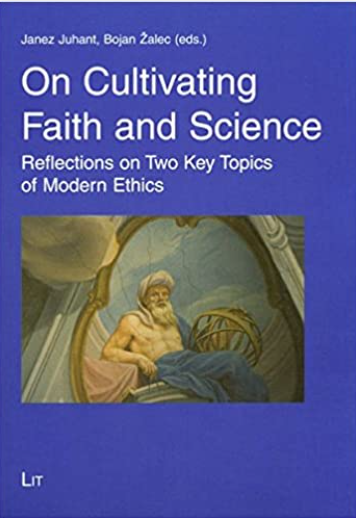 Buy | Janez Juhant, Bojan Zalec (Eds.) On Cultivating Faith and Science Reflections on Two Key Topics of Modern Ethics Reihe: Theologie Ost-West Bd. 9, 2007, 296 S., 24.90 EUR, 24.90 CHF, br., ISBN 978-3-8258-0597-5 The ethical distress of the (post)modern world stimulates and directs us to reflect our ethical and cultural grounds. Man is a transcendent being. He cannot reach or put in order immediate goods he needs if he is not prepared to acknowledge the grounds of his person and develop the virtues of prudence, love, hope, faith, wisdom, justice, courage, temperance etc. These are ethical questions concerning different worldviews and cannot be solved only by scientific methods. Many people who in the past did not care for religion as such, now take seriously religious personal and societal aspects of humane life. The fundamental crucial questions of man are ethical questions. They are in various ways related or perplexed with the question of faith and of science. Janez Juhant ist Professor für Philosophie an der Theologischen Fakultät der Universität Ljubljana und Vorstand des Lehrstuhles. Sein Arbeitsschwerpunkt liegt auf ethischen Fragestellung, die sich für Menschen der Postmoderne ergeben. |
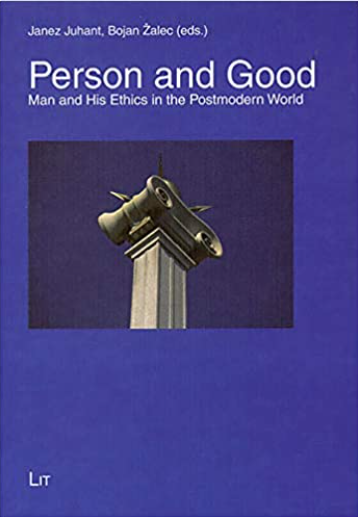 Buy | Janez Juhant, Bojan Zalec (Eds.) Person and Good Man and His Ethics in the Postmodern World Reihe: Theologie Ost-West Bd. 6, 2006, 336 S., 19.90 EUR, 19.90 CHF, br., ISBN 3-8258-9240-9 From the old times on, doubtless ethics presents an important part of philosophy, mainly as guidance for solving practical problems. In the times of big social changes the ethical questions arise anew. The current times of scientific and technological radical changes, of globalization and instability, demand up-to-date ethical discussion and answers. According to all the differences in the world, which occur because of the media and technological capabilities present in the consciousness of ordinary people, one should ask himself how to find the directions of the action and activity of an individual, of people, of humanity. And as a result of the rapid development of scientific and technological power, the things are becoming more and more complicated and potentially dangerous. What was in the past solved only by God and by the nature itself, it is today also essentially influenced by humans themselves. Hence, the ethics and morality are far more important as they used to be and they concern the survival of humanity as such. However, the authors in this book have been trying to face these problems. Janez Juhant ist Professor für Philosophie an der Theologischen Fakultät der Universität Ljubljana und Vorstand des Lehrstuhles. Sein Arbeitsschwerpunkt liegt auf ethischen Fragestellung, die sich f³r Menschen der Postmoderne ergeben. |
